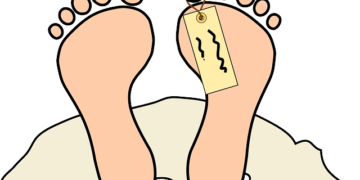An international meet on neuro disorders organised by the Department of Biomedical Engineering in collaboration with the Department of Education, North Eastern Hill University, Shillong concluded yesterday.
The International Brain Research Organization (IBRO) APRC Associate School on “Modern Interventional Tools for Children with neurodevelopmental Disorders” was aimed to provide participants with extensive knowledge to understand the modern interventional tools related to cognitive impairment in children with neurodevelopmental disorders and improvement in their functional outcome and quality of life.
NEIGRIHMS Director, Prof. Nalin Mehta who attended the valedictory function as chief guest spoke about integration of social, emotional and scientific components and need for ethics based research. He stressed upon improving the quality of life of people in general and children in particular, which is an important facet of the researchers and policy makers with special reference to neurodevelopmental disorders.
He said technological interventions should be more prominent in the development of modern tools and techniques and their integration with the society. The ethical issues, confidentiality, protection of child rights, and protection of minors, respect of incompetent children, reaching the unreached are the multiple issues in the present society which needs to be addressed, Mehta said and also suggested for the integration of different domains such as Medicine, Engineering, Technology, and Social Sciences for the betterment of society.
ICSSR-NERC NEHU Honorary Director, Prof. B. Panda spoke about the study on socio-economic impact on benefits available to such population highlighting the lack of study in our country which was the need of the hour. He discussed about overcoming the digital divide and providing education on neurodevelopmental disorders to the society.
He stressed upon the lack of cost-based research with special reference to neuroscience in the country. He said that the education, health, and income are playing a major role in improving the individual capability and community capabilities in any society.
Special invited guest Prof. Yukiko Goda, APRC Representative, Deputy Director and Team Leader, RIKEN Centre for Brain Science, Woko, Japan discussed about the scope of the ongoing IBRO School and the opportunities available to young budding scientists and researchers for seeking funding from the IBRO.
Prof. Yukiko informed about the different brain research societies and their activities. She stressed on the need of technological interventions for the benefit of people with disability.
Dr.Rajpal Singh, Joint Secretary, SNCI spoke about the need for organizing such events and role of the SNCI in promoting such events in the country for past more than 50 years.
Dr. Dinesh Bhatia, Associate Professor and Coordinator, Biomedical Engineering Department, NEHU, Shillong stressed that the technological interventions are important to improve the quality of life and touched upon the different research findings that affect the quality of life of disabled population in the country.
The participants for this School were doctoral research scholars, master’s students, young faculty members, scientists and researchers working in the field from the Asia Pacific region. The School received large number of applications from participants from different countries in the Asia Pacific region such as India, Pakistan, Bangladesh, Armenia, Nigeria etc. Eminent Speakers from India and abroad shared their knowledge and experience during the week-long event.
The school is being held in close coordination with the Society for Neurochemistry India (SNCI) Satellite meeting scheduled immediately on completion of the IBRO School from October 30 to November 1.





























